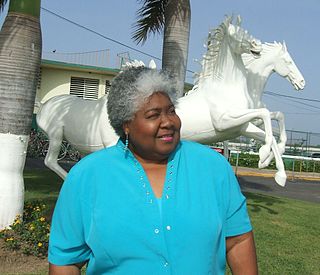A Quote by Rhea Perlman
Sometimes a child will get lucky and be placed with foster parents who are loving and supportive and who consider that child their own. But for many, that doesn't happen. Kids are moved around from home to home, to group home and institutions, until they are 18, when they are considered adults and the system is finished with them.
Related Quotes
The child in each of us Knows paradise. Paradise is home. Home as it was Or home as it should have been. Paradise is one's own place, One's own people, One's own world, Knowing and known, Perhaps even Loving and loved. Yet every child Is cast from paradise- Into growth and new community, Into vast, ongoing Change.
The character of a child is formed largely during the first twelve years of his life. He spends 16 times as many waking hours in the home as in the school, and 126 times as many hours in the home as in the church. Each child is, to a great degree, what he is because of the ever-constant influence of home environment and the careful or neglectful training of parents. Home is the best place for the child to learn self-control, to learn that he must submerge himself for the good of another. It is the best place in which to develop obedience, which nature and society will later demand.
When I have children that go home and mom and dad are not home because they're working, they're trying to get food on the table, and they come home to an empty house and they go to sleep in an empty house, there is no way that child can compete against a child from the west side of Los Angeles who both parents went to Stanford. Well, good for them, God love them. That's not an equal playing field.
Even in New York City, we've seen some major improvements from the way the system was 20 years ago. There's still a lot to do - we know that training workers and parents, reducing caseload size, developing therapeutic foster care, strengthening kinship care, and putting more emphasis into preventive care are all solutions. Unfortunately, if a child is in a situation where removal from the home becomes neccessary, there's already been trauma. Putting a traumatized child into a "system," not a home, with strangers is creating a perfect storm for further trauma.
Sometimes, having a mom stay home is a big help. On the other hand, when a mother works outside the home, her husband generally does more child care and has higher parental knowledge about his childrens' friends, routines, and needs, cutting across the tendency for fathers to be second-string parents at home.
Wherever possible, home is by far the best nest until at least eight, ten or twelve. Psychologists and psychiatrists who understand child development would prefer an even later age. In a reasonably warm home, parent-child responses, the true ABC's of sound education, are likely to be a hundred times more frequent than the average teacher-child responses in a classroom.
The parent-child relationship in the home usually reflects the objective cultural conditions of the surrounding social structure. If the conditions which penetrate the home are authoritarian, rigid, and dominating, the home will increase the climate of oppression. As these authoritarian relations between parents and children intensify, children in their infancy increasingly internalize the paternal authority.
Please don't kill the child. I want the child. Please give me the child. I am willing to accept any child who would be aborted, and to give that child to a married couple who will love the child, and be loved by the child. From our children's home in Calcutta alone, we have saved over 3,000 children from abortions. These children have brought such love and joy to their adopting parents, and have grown up so full of love and joy!
I want to clear this once and for all. I was born in Hong Kong. I grew up in Japan and China. London is not home for me. I was there only for three years before I moved to India, but that's probably why I am connected with it. London is definitely not the place I consider my home. It's India that I consider home.




































